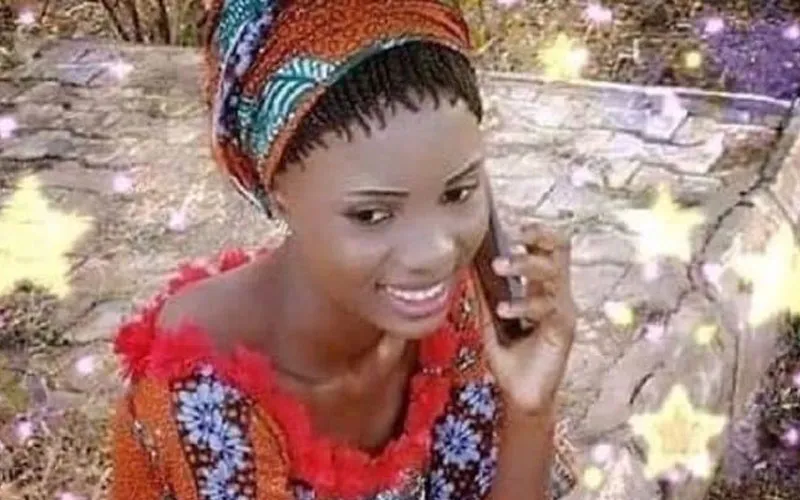“Nothing, I mean nothing at all can justify or even excuse the slaughter and murder of anyone by a mindless mob like what Deborah has gone through. She may be considered careless, carefree or even reckless, name it, but no human being deserves to be treated like she has been treated,” he says.
“In civilized societies, even the most hardened criminal deserves a fair hearing and trial. Deborah was certainly nothing near a hardened criminal,” the Local Ordinary of Oyo Diocese who doubles as the President of the Pan African Episcopal Committee for Social Communications (CEPACS) says, explaining that Deborah’s killing goes beyond religious rights to a higher level of human rights.
He adds, “It really does not matter whether Deborah was E.C.W.A, C.A.C, Redeem, Catholic or even a Muslim person. She had rights and dignity which were criminally abrogated and impugned.”
The Nigerian Catholic Bishop says that denial of rights in Nigeria need to be penalized and prevented from reoccurring.
Deborah’s case, Bishop Badejo further says, should be used as a reference for clearing the backlog of such occurrences in Nigeria and address the prospect of reoccurrence. He adds, “If we take our eyes away from that we lose it all.”
(Story continues below)
In his reflection, Bishop Badejo appreciates the fact that many “credible” Muslim teachers and scholars are beginning to speak as never before, criticizing the assumptions and affirmations of fellow Muslims who endorse Deborah’s killing.
The Catholic Bishop says that the people of God stand a great chance of benefitting from what he describes as “a war of ideology interrogating itself” with the new approach taken by Muslim scholars.
He urges Christians to always embrace peace and to engage with the section of Muslims who are more open to dialogue.
“I think we as Christians must reflect and carefully coax and coopt this section of the Muslim community in order to achieve a greater victory for Nigeria and humanity,” Bishop Badejo says in his reflection shared with ACI Africa May 16.
He adds, “Such projects are not always best undertaken by protest marches and violent reactions. They require well thought out expressions, communications and strategies that will induce reflection, convince and persuade the general public so that this tragedy does not happen again.”
The Bishop says that he had spoken with the fathers of Deborah and Leah Sharibu who remains at the hands of Islamist kidnappers, and that both fathers had demonstrated a great sense of courage and faith.
He says, in reference to the fathers of Leah and Deborah, “These are the main victims and dramatis personae of some of Nigeria’s recent debacles.”
Bishop Badejo says he had also reached out to his colleague, Bishop Matthew Hassan Kukah of the Catholic Diocese of Sokoto, the hometown of the Nigerian institution of higher learning where Deborah was stoned to death.
He says that Bishop Kukah and the parents of Leah and Deborah are all people of very deep faith who have a much wider scope to the problem at hand. “Their perspectives are much wider and even wiser than the views and reactions of most of us outraged Nigerians. I admire them and I deduce from them that this particular case, coming at this critical time in our political history, if handled well, can be the turning point for Nigeria to uncover the hypocrisy of our leaders and prospective leaders.”
Bishop Badejo says that if handled well, Deborah’s case “can help us embark on genuine, robust public discourse and strategies for authentic change for Nigeria.”
Agnes Aineah is a Kenyan journalist with a background in digital and newspaper reporting. She holds a Master of Arts in Digital Journalism from the Aga Khan University, Graduate School of Media and Communications and a Bachelor's Degree in Linguistics, Media and Communications from Kenya's Moi University. Agnes currently serves as a journalist for ACI Africa.








